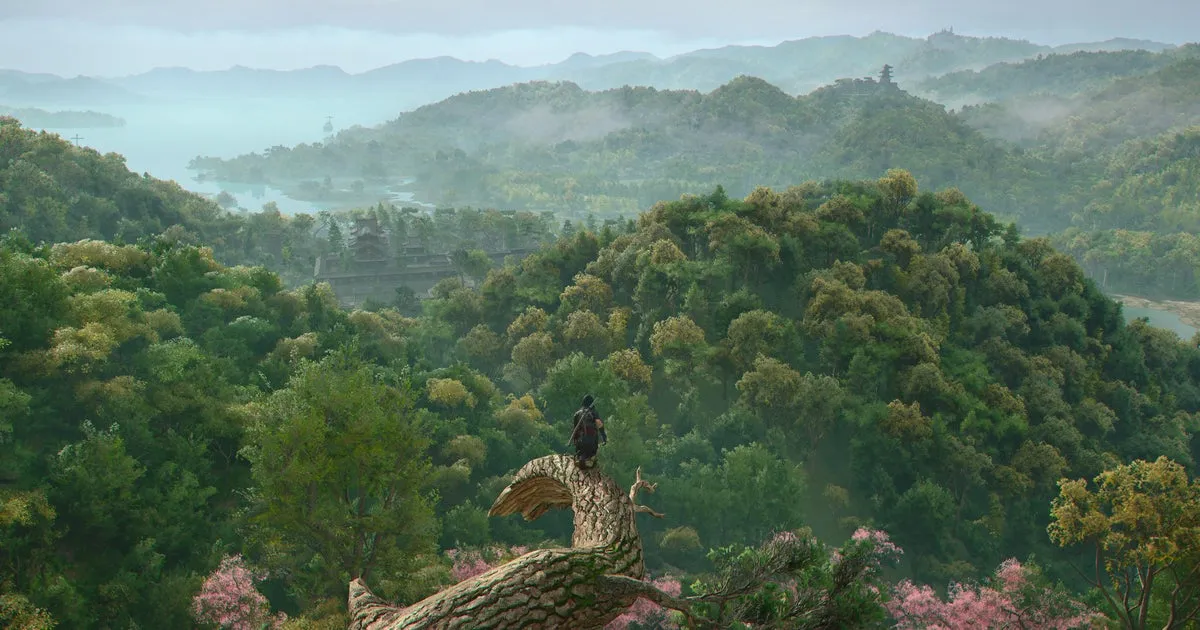
In recent years, it seems that open world games have been experiencing a significant existential crisis. The traditional formula that has successfully captivated players—sprawling maps filled with question marks and icons—appears to be losing its charm. This shift has prompted a collective realization within the gaming community: a fundamental change or evolution is essential for the genre to flourish. However, this presents a dilemma: developers are grappling with what this new form should look like.
A key player in this conversation is The Legend of Zelda: Breath of the Wild. This game revolutionized the open world genre by introducing innovative design elements that shifted the focus from traditional gameplay mechanics to a more exploratory experience. Unlike its predecessors, which relied heavily on incrementally increasing gear numbers and a plethora of map icons, Breath of the Wild offered a more organic approach. Its map drew players in with detailed topographical features rather than pre-set waypoints, encouraging exploration in a more artistic and engaging manner.
Following the success of Breath of the Wild, many open world games attempted to adopt its principles, often with mixed results. For instance, Assassin's Creed: Valhalla presented a unique take on map discovery. Starting with a fogged-out map of southeastern England, Valhalla attempted to navigate the challenges of the classic Big Question Mark problem. Instead of filling the map with generic mystery boxes, the developers opted for glowing dots—silver for one type of activity and gold for rare loot. This approach resulted in a somewhat confusing experience that struggled to find its identity, merging the icon-driven style of previous Assassin's Creed titles with the more minimalistic approach of Zelda.
The broader issue stems from how modern games are designed to engage players. Titles from franchises like Halo, Gears of War, and even God of War have faced similar challenges in implementing their open worlds. Many developers are caught in a tug-of-war between creating user-friendly experiences and encouraging active player engagement. Ubisoft, in particular, has come under fire for its reliance on a formulaic open-world structure characterized by tower-climbing and icon-revealing mechanics.
At the heart of the critique lies the concept of passivity in gaming. Recent iterations of Assassin's Creed allowed players to set their horses to auto-run, effectively putting them on autopilot while they engaged with gameplay. This design philosophy has led to a lack of discovery, experimentation, and active inquiry. Instead, players are presented with a constant stream of rewards and objectives, allowing for a hands-free experience that detracts from the thrill of exploration.
The discussion surrounding open world design often boils down to a dichotomy: hands-off discovery, as seen in Breath of the Wild, versus the hands-on approach of titles like Assassin's Creed. While the former encourages players to navigate their surroundings organically, the latter provides a structured pathway that some players find comforting. Critics argue that this structured design can lead to a sense of addiction, as players are drawn into a loop of continuous discovery without meaningful engagement.
However, labeling games like Assassin's Creed as mere "junk food" overlooks the potential enjoyment and engagement they can offer. Picture a scenario where you're exploring the vibrant hills around Osaka Castle. You encounter a villager with a quest, leading you down an unexpected path of discovery that enhances your gaming experience. This kind of gameplay—characterized by emergent stories and spontaneous quests—can be equally rewarding, even if it relies on structured mechanics.
The key takeaway from this discussion is the importance of balance. While it's crucial to push back against passive gaming experiences, it's also essential to recognize the joy and artistry that can be found in more straightforward, structured gameplay. Developers like Ubisoft have a place in this spectrum, crafting experiences that offer players a different kind of enjoyment.
Ultimately, there is room for both hands-off exploration and hands-on engagement within the realm of open world games. As players, we must make conscious choices about how we engage with these experiences. Whether galloping towards a grand castle or embarking on a spontaneous quest, the joy of gaming lies in the freedom to immerse ourselves on our own terms. In this evolving landscape of open world gaming, it's essential to appreciate the artistry and creativity that each title brings to the table, ensuring that fun and exploration remain at the forefront of our experiences.